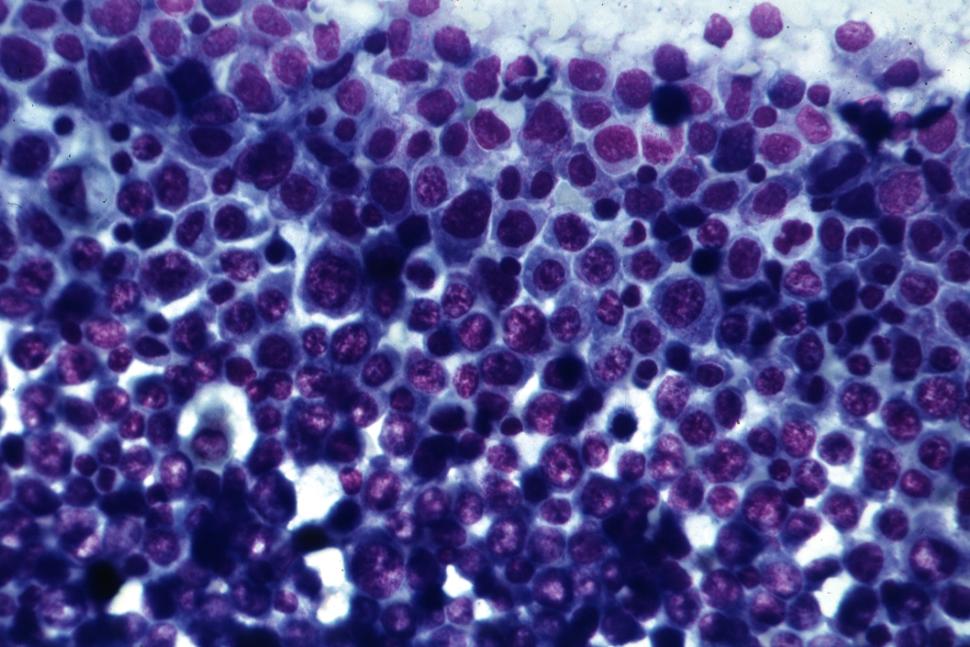About MDS and AML
MDS are a group of cancers in which immature blood cells in the bone marrow do not mature or become healthy blood cells. AML is a type of cancer in which the bone marrow makes a large number of abnormal blood cells.
Both MDS and AML originate from a type of blood cell called a myeloid stem cell. Myeloid stem cells produce one of three types of mature blood cells: red blood cells, platelets, or certain types of white blood cells.
The myeloMATCH Trials
MyeloMATCH consists of an initial screening study and multiple treatment trials. In the screening study, people with newly diagnosed MDS or AML will have blood and bone marrow samples collected. These samples will be analyzed for genetic changes commonly seen in MDS and AML. Based on the findings from the genetic analysis, participants will then be assigned to a trial testing treatments that target the specific mutations in their tumors or that may be particularly active because of the genetic makeup of the cancer.
Participants who do not match with a treatment study in myeloMATCH will receive standard therapy for their cancer and will be considered for other myeloMATCH treatment trials that could offer appropriate therapy for them.
One goal of myeloMATCH is to offer clinical trials to people with MDS or AML throughout the course of their disease until cure, progression, or death. To participate in myeloMATCH, people must be newly diagnosed and not yet have received treatment for MDS or AML.
If the initial treatment reduces the person’s disease, they may undergo further genetic testing to match them to a subsequent trial testing a treatment that targets their remaining disease. As the amount of a person’s disease decreases further, study investigators will use increasingly sensitive tools, such as biomarker assays, to discover the genetic changes that continue to drive cancer growth and design myeloMATCH treatment trials to target the remaining cancer cells.
Trials Currently Open to Recruitment
The following myeloMATCH trials are currently open for enrollment.
| Trial IDs | Trial Title | Cancer Type |
|---|---|---|
| MYELOMATCH NCT05564390 | MyeloMATCH Screening Trial | MDS or AML |
| MM1OA-EA02 NCT06317649 | Venetoclax and HMA Treatment of Older and Unfit Adults with FLT3 Mutated Acute Myeloid Leukemia | AML |
| MM1YA-S01 NCT05554406 | Testing the Effects of Novel Therapeutics for Newly Diagnosed, Untreated Patients with High-Risk Acute Myeloid Leukemia | AML |
| MM1YA-CTG01 NCT05554393 | Comparing Cytarabine and Daunorubicin Versus Venetoclax with Cytarabine and Daunorubicin Versus Azacitidine and Venetoclax in Younger Patients with Intermediate Risk AML | AML |
| MM1MDS-A01 NCT06577441 | Testing the Addition of an IDH2 Inhibitor, Enasidenib, to Usual Treatment (Cedazuridine-Decitabine) for Higher-Risk Myelodysplastic Syndrome (MDS) with IDH2 Mutation | MDS |
| MM1OA-S03 NCT06672146 | Comparing New Treatments for People with Newly Diagnosed Acute Myeloid Leukemia That Has an IDH2 Gene Change | AML |
For More Information
MyeloMATCH is being conducted by the National Clinical Trials Network, with the participation of the NCI Community Oncology Research Program (NCORP). Treatment trials will be led by SWOG Cancer Research Network, Alliance for Clinical Trials in Oncology, ECOG-ACRIN Cancer Research Group, and the Canadian Cancer Trials Group. The Frederick National Laboratory for Cancer Research, Fred Hutch Cancer Center, and Children’s Hospital Los Angeles will provide clinical laboratory support for the studies.
To learn more about myeloMATCH and how to enroll, talk with your doctor or other health care provider. More details about the myeloMATCH screening study are available in the protocol summary and on the SWOG Cancer Research Network website.
For questions about myeloMATCH or any other cancer topic, contact NCI’s Cancer Information Service by phone, live chat, or email.
